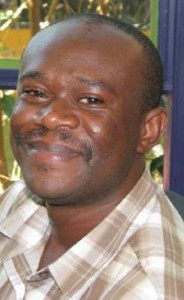Categories
-
ANU Africa Network
Posted on
by
This website was established in 2013 by David Lucas, and renovated and relaunched in 2020 as part of a project to increase awareness of Africa and African studies in the ANU and the ACT, funded by the Australian Government’s Department of Foreign Affairs and Trade.
Another outcome of that project was a major research report, published in August 2021, African Studies at the Australian National University and in the Australian Capital Territory, analyzing the past, present and future of the study of Africa at the Australian National University and the wider Australian University sector.

The major innovation on this updated website is the creation of the ACT Africa Expert Directory which lists experts on Africa from institutions around the ACT, primarily the ANU. We will continue to curate this list, offering a key resource for media, government and non-government organizations seeking expert facts and opinions on Africa. Individuals can request to be added to the list by contacting the website managers.
Another notable addition is the expanded directory of PhD theses on Africa produced in the territory’s universities, a solid measure of the vitality of the study of Africa in the city of Canberra.
Reviewing these directories, it is revealing to note that the vast majority of research on Africa is produced by disciplinary experts (environmental scientists, economists, demographers, etc.) rather than area studies experts. This means that the study of Africa is woven into the fabric of the research culture of the ANU and the ACT’s other universities in ways that are not necessarily apparent.
-
Ghana International Trade Fair
Posted on
by
The Ghana High Commission in Canberra has advised the Australia Africa Business Council that the 19th Ghana International Trade Fair will be held in Accra from 26th February to 8th March 2015. A letter from the High Commission is attached.
-
COMMONWEALTH RESEARCH
Posted on
by
The ACT Branch of the Royal Commonwealth Society has announced the first Phyllis Montgomerie Commonwealth Award of up to $5000, which is restricted to Australian citizens resident in the ACT. “Proposed projects must be carried out in a Commonwealth country and applicants are being asked to include a clear statement of identifiable outcomes.”
“Application forms, background information about the award, the Commonwealth ACT Branch and the RCS ACT Branch, are available on request at rcsact@bigpond.com “
Closing date 28th November.
-
The first Caldwell African Research Visiting Fellow
Posted on
by
Dr Makandwe Nyirenda from the Africa Centre for Health & Population Studies, University of KwaZulu-Natal in South Africa has been awarded the first John C Caldwell African Research Visiting Fellowship and should arrive at the ANU later this year.
The Fellowship is funded through the John C (Jack) Caldwell Chair in Population, Health and Development Endowment Fund – Jack Caldwell being one of the ANU’s most distinguished Africanists.
Dr Nyirenda is a graduate in Demography and Economics from the University of Zambia, thus maintaining the ANU’s link with UNZA.
For more details see:
https://adsri.anu.edu.au/news-caldwell-fellowship

